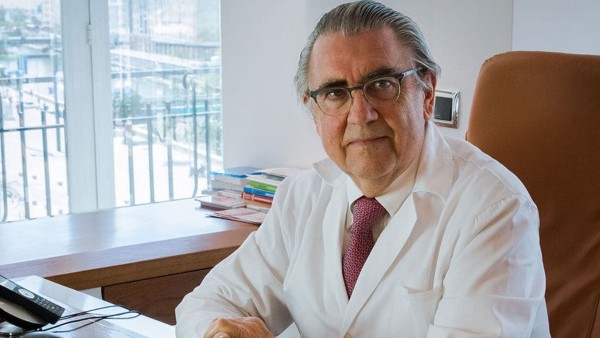Andropause remains a topic surrounded by taboos and a lack of awareness in our society. While it is not as abrupt as female menopause, this stage can bring about significant physical, emotional, and hormonal changes for those who experience it.
Often referred to as male menopause, this process involves a series of hormonal and physical changes that occur in men as they age, typically beginning around the age of 40.
This phenomenon is characterized by a gradual decline in testosterone levels, which can lead to a range of symptoms affecting both physical health and emotional well-being. Understanding these characteristics is essential, as they not only impact the quality of life of those affected, but also present challenges for proper diagnosis and treatment.
To gain deeper insight into this topic, we spoke with Dr. Pedro Torrecillas, a surgeon specialized in urology and andrology, and one of Europe’s most renowned experts in the field. He serves as Vice President of the International Society of Cryosurgery and conducts research in uroandrological clinical practices. Together with his team in Málaga, he has pioneered numerous diagnostic techniques and treatments for andropause and erectile dysfunction.
At what age do men typically begin to experience the first symptoms of andropause, and which are the most common?
Starting around the age of 40, men may begin to experience a range of physical and emotional symptoms that impact their quality of life as they age. Common symptoms include reduced libido, persistent fatigue, depression, loss of vitality, sleep disturbances, and changes in body composition—such as increased abdominal fat and decreased muscle mass. These manifestations are the result of declining testosterone levels, which affect both sexual function and emotional well-being.
It is essential to address both the physical and emotional aspects when treating andropause, as appropriate intervention can significantly improve symptoms in this age group, promoting a healthier and more balanced aging process.
Is the decline in testosterone the only factor influencing andropause, or are there other elements that also affect men during this stage?
A vicious cycle is created in which hormonal deficiency leads to depression, loss of muscle mass, and erectile dysfunction—further worsening the symptoms of andropause. This affects not only the sex hormones, but also all the hormones governed by what is known as the hypothalamic-pituitary axis, the system responsible for producing and regulating various hormones. These hormones control essential functions such as growth, stress adaptation, thyroid hormone release, and the regulation of water excretion by the kidneys.
What impact does andropause have on men’s physical and mental health, and how can it affect their quality of life?
Andropause affects not only physical health but also mental well-being, due to the connection between these dysfunctions and emotional stability.
Additionally, aging impacts sleep quality, increasing complaints of insomnia—especially among older adults—which can worsen andropause symptoms and contribute to a cycle of discomfort that undermines overall health.
Medical literature has shown that andropause can be considered a clinical and biochemical syndrome, in which factors such as gonadal aging (of the reproductive system) and elevated levels of sex hormone-binding globulin play a crucial role. As awareness of this condition grows, it is essential for both the medical community and patients to learn how to identify and address these symptoms to improve its management.
What treatments are currently available to manage the symptoms of andropause, and in which cases is it advisable to consult a urologist?
Treatment is always hormone-based, although we are currently leaning toward bioidentical hormone therapy using implanted pellets. These pellets, similar in size to grains of rice, are inserted under the skin near the waistline, allowing the body to absorb the exact amount of hormone it needs.
For example, individuals who engage in intense physical activity or exercise will require more hormones, which are consumed more quickly. In contrast, those with a sedentary lifestyle will use less. These bioidentical hormones are biologically identical to those naturally produced by the body, but they are derived from plant sources and manufactured by the same laboratories that produce synthetic hormones available in pharmacies.
Testosterone pellets are inserted under local anesthesia and can remain effective for seven to nine months. The procedure is performed in the clinic, and patients can immediately resume their normal activities. These same hormones are also used in women undergoing menopause, significantly improving physical, emotional, and sexual well-being.
Before beginning treatment, a thorough and detailed evaluation is required, including a full examination of the genital system—testicles, penis, and prostate—along with hormonal blood tests. We recommend consulting a urologist or andrologist as soon as symptoms appear. The first warning signs are typically fatigue or a noticeable drop in sexual desire.

